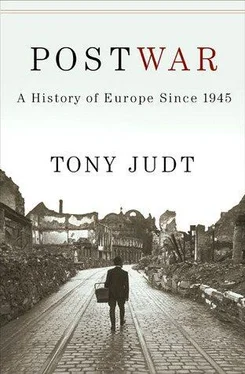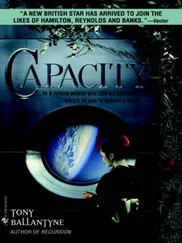Immediately following Marshall’s speech the foreign ministers of Britain, France and the USSR met in Paris, at Bevin’s suggestion, to consider their response. On July 2nd the Soviet foreign minister Vyacheslav Molotov walked out and two days later Britain and France formally invited representatives of 22 European countries (excluding only Spain and the Soviet Union) to discuss the proposals. On July 12th sixteen European states took part in these discussions. All of these—Britain, France, Italy, Belgium, Luxemburg, Netherlands, Denmark, Norway, Sweden, Switzerland, Greece, Turkey, Ireland, Iceland, Austria and Portugal—would be among the eventual beneficiaries. But despite the initial interest shown by Poland, Czechoslovakia, Hungary, Bulgaria and Albania, no future Communist state took part in the European Recovery Programme or received a dollar in Marshall aid
It is worth pausing to consider the implications of this. The fact that the money was to be confined to the West (with Greece and Turkey as honorary west Europeans) undoubtedly made it easier for Truman to secure passage of the ERP through Congress the following year. But by then much had changed and Congress was willing to be convinced that Marshall Aid was an economic barrier to Soviet expansion. In June 1947, however, the offer of aid through Marshall’s new programme was made to all European countries without distinction. Stalin and Molotov were of course suspicious of American motives—the terms Marshall was proposing were quite incompatible with the closed Soviet economy—but their sentiments were not widely shared elsewhere in eastern Europe, in what was not yet a bloc .
Thus Jan Masaryk, Czechoslovakia’s non-Communist Foreign Minister, enthusiastically accepted the joint Franco-British invitation of July 4th. The very next day the Czech Communist Party leader and Prime Minister, Klement Gottwald, was summoned to Moscow and initially instructed to attend the Paris conference. But his orders were clear: he was to use his presence in Paris to demonstrate ‘the unacceptability of the Anglo-French plan, prevent the adoption of unanimous decisions, and then leave the conference, taking as many delegates of other countries as possible.’
Four days later Stalin reconsidered. Gottwald was told to withdraw his country’s acceptance of the invitation to Paris. Meeting with a delegation from the Czech government, including Masaryk, Stalin advised the Czechs that ‘[w]e consider this matter to be a fundamental question on which [Czech] friendship with the USSR depends. If you go to Paris, you will show that you want to cooperate in an action aimed at isolating the Soviet Union.’ The next day the Czech coalition government duly announced that it would not be sending a delegation to Paris. ‘Czechoslovak participation would be construed as an act directed against friendship with the Soviet Union and the rest of our allies. That is why the government unanimously decided it will not take part in this conference.’
Why did the Czechs give way? Their Polish and Hungarian neighbours, with the Communists already in charge and the Red Army in close attendance, had no option but to follow Soviet ‘guidance’. But the Red Army had long since left Czechoslovakia and the Communists did not yet have a monopoly of power. Yet Masaryk and his colleagues buckled at the first display of Stalin’s displeasure. Had the non-Communist Czech parties insisted on accepting Marshall Aid they would have carried the overwhelming majority of their fellow citizens (and quite a few Czech Communists) with them, making it that much harder for Stalin to justify enforcing his will. In the broader context of post-Munich politics the Czech decision to favour the Soviet embrace was understandable; but it almost certainly paved the way for the Communists’ successful coup in Prague seven months later.
Czechoslovakia’s exclusion from the Marshall Aid programme was an economic and political catastrophe for the country. The same is true of the ‘choice’ imposed on every other country in the region, and above all, perhaps, for the Soviet Union itself. His decision to stand aside from the European Recovery Program was one of Stalin’s greatest strategic mistakes. Whatever their private calculations, the Americans would have had no choice but to include eastern Europe in the ERP, having made the offer available to all, and the consequences for the future would have been immeasurable. Instead, the aid was confined to the West and marked a parting of the ways between the two halves of the continent.
Marshall Aid was from the start intended to be self-limiting. Its goal, as Marshall himself set it out in his Harvard speech, was to ‘break the vicious circle and restore the confidence of the European people in the economic future of their own countries and of Europe as a whole.’ Rather than merely offering aid in cash it proposed the provision of goods, free of charge, delivered to European countries on the basis of annual requests formulated as part of a four-year plan by each recipient state. These goods, when sold in each country, would generate so-called ‘counterpart funds’ in the local currency which could be used according to bilateral agreements reached between Washington and each national government. Some countries used these funds to purchase more imports; others, like Italy, transferred them into their national reserves in anticipation of future foreign exchange needs.
This unusual way of furnishing assistance carried innovative implications. The programme obliged European governments to plan ahead and calculate future investment needs. It laid upon them a requirement to negotiate and confer not just with the United States but with each other, since the trading and exchanges implied in the programme were intended to move from the bilateral to the multilateral as soon as possible. It constrained governments, businesses and labour unions to collaborate in planning increased rates of output and the conditions likely to facilitate them. And above all, it blocked any return to the temptations that had so stymied the inter-war economy: under-production, mutually destructive protectionism, and a collapse of trade.
Although the US administrators of the Plan made no secret of their expectations, they left it to Europeans to take responsibility for determining the level of aid and the manner of its distribution. European politicians—accustomed to the blunt self-interest of the US in earlier bilateral loan negotiations—were rather taken by surprise. Their confusion was understandable. Americans themselves were divided as to the goals of the Plan. Idealists in the New Deal mould—and there were many in post-war American administrations—saw an opportunity to reconstruct Europe in the American image, emphasizing modernization, infrastructural investment, industrial productivity, economic growth and labour-capital cooperation.
Thus ‘productivity missions’, funded by the Marshall Plan, brought to the US many thousands of managers, technicians and trade unionists to study the American way of business—five thousand from France alone (one in four of the overall total) between 1948 and 1952. One hundred and forty-five ‘European productivity teams’ arrived in the US just between March and July 1951—in most cases consisting of men (rarely women) who had never before set foot outside Europe. Meanwhile enthusiastic New Dealers in the Organization for European Economic Cooperation (OEEC), set up in 1948 as a conduit for ERP funds, urged upon their European colleagues the virtues of freer trade, international collaboration and inter-state integration.
These American urgings met, it must be said, with limited immediate success. Most European politicians and planners were not yet ready to contemplate grand projects of international economic integration. The Marshall Planners’ greatest achievement in this respect was perhaps the European Payments Union, proposed in December 1949 and inaugurated a year later. Its limited objective was to ‘multilateralize’ European trade by establishing a sort of clearing-house for debits and credits in European currencies. This was designed to overcome the risk that each European country might try to save badly needed dollars by restricting imports from other European countries, to everyone’s eventual disadvantage.
Читать дальше












